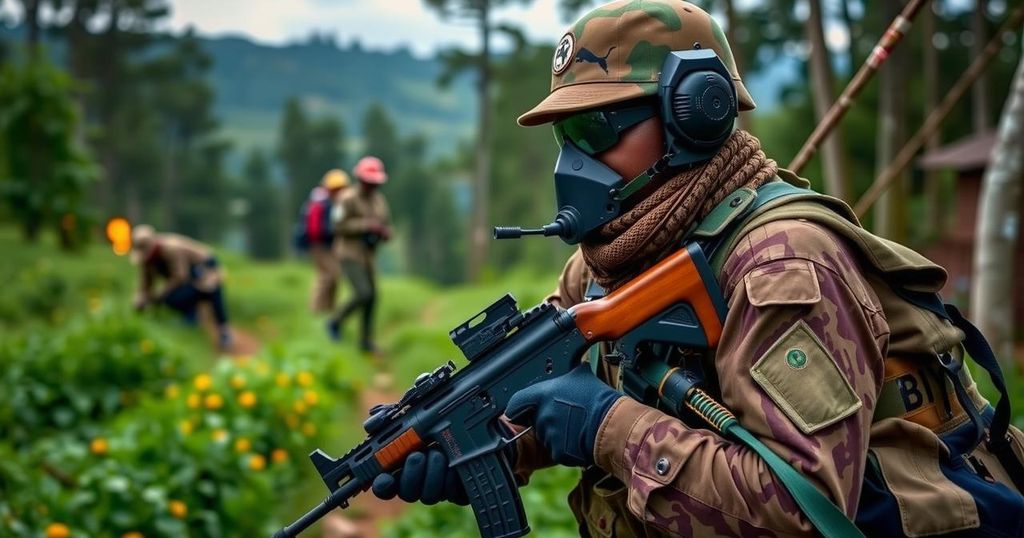DR Congo Accuses M23 Rebel Group of Ethnic Cleansing Amidst Escalating Violence

The DRC government has accused the Rwanda-backed M23 rebel group of ethnic cleansing in eastern Congo. Minister Jacquemain Shabani noted the violent displacement of local populations in Rutshuru and Masisi, coinciding with M23’s appointment of local administrators. The crisis has resulted in over seven million displaced individuals, with Rwanda’s military involvement remaining a contentious point amid ongoing violence among numerous armed groups.
The government of the Democratic Republic of the Congo (DRC) has accused the M23 rebel group, allegedly supported by Rwanda, of committing acts of “ethnic cleansing” in the eastern regions of Rutshuru and Masisi, situated within North Kivu province. Interior Minister Jacquemain Shabani highlighted a significant influx of foreign populations into these areas, asserting that local residents have been violently displaced. Shabani emphasized that these actions distinctly qualify as ethnic cleansing. The M23 group has recently appointed administrators in territories it claims to control, heightening tensions amidst ongoing conflicts involving over 100 armed factions vying for dominance in a region rich in minerals. The resurgence of the M23 group, primarily composed of ethnic Tutsis who defected from the Congolese army over a decade ago, has magnified the crisis, leading to more than seven million people being displaced and suffering from one of the world’s most severe humanitarian crises. Moreover, allegations have surfaced regarding Rwandan military support for the M23, claims which Rwanda denies, despite acknowledging its troop presence in eastern Congo to address security concerns regarding the buildup of Congolese forces. A recent truce facilitated by the United States and Angola was expected to reduce hostilities; however, skirmishes between M23 and pro-government militias have resulted in civilian casualties, with recent clashes resulting in the deaths of 16 individuals.
The conflict in the eastern Democratic Republic of the Congo is deeply rooted in a complex interplay of historical, ethnic, and geopolitical factors. The M23 rebel group, whose name refers to the March 23, 2009, peace accord—an agreement they claim was violated—has emerged as a significant force since its resurgence in 2021. The eastern provinces of the DRC are a site of extensive mineral wealth, attracting various armed groups and foreign interests, notably from Rwanda. Historical tensions involving ethnic groups, especially between Hutu and Tutsi populations, continue to fuel violence and instability in this volatile region. The humanitarian crisis resulting from ongoing conflicts has led to millions being forcibly displaced, illustrating the urgent need for resolution and international intervention.
The situation in eastern DRC is dire, with accusations of ethnic cleansing against the M23, a group implicated in the mass displacement of local populations. Ongoing violence, exacerbated by alleged foreign involvement and the presence of multiple armed factions, has resulted in a significant humanitarian crisis. Diplomatic efforts, including a recent truce, have yet to stabilize the region, highlighting the complex challenges that must be addressed to ensure peace and security for the affected populations.
Original Source: morningstaronline.co.uk








